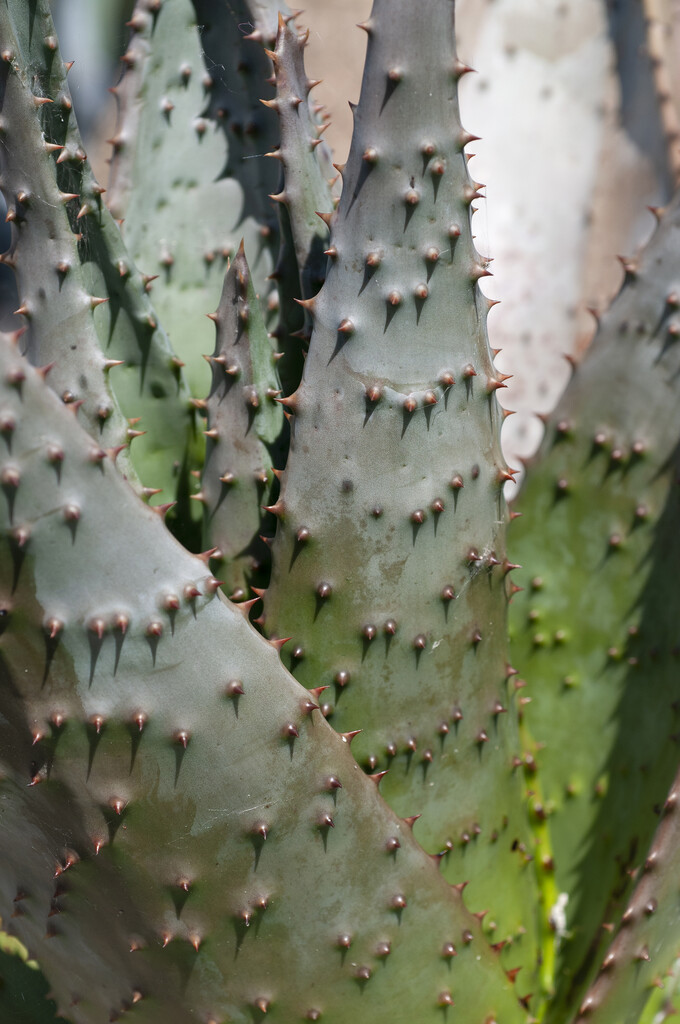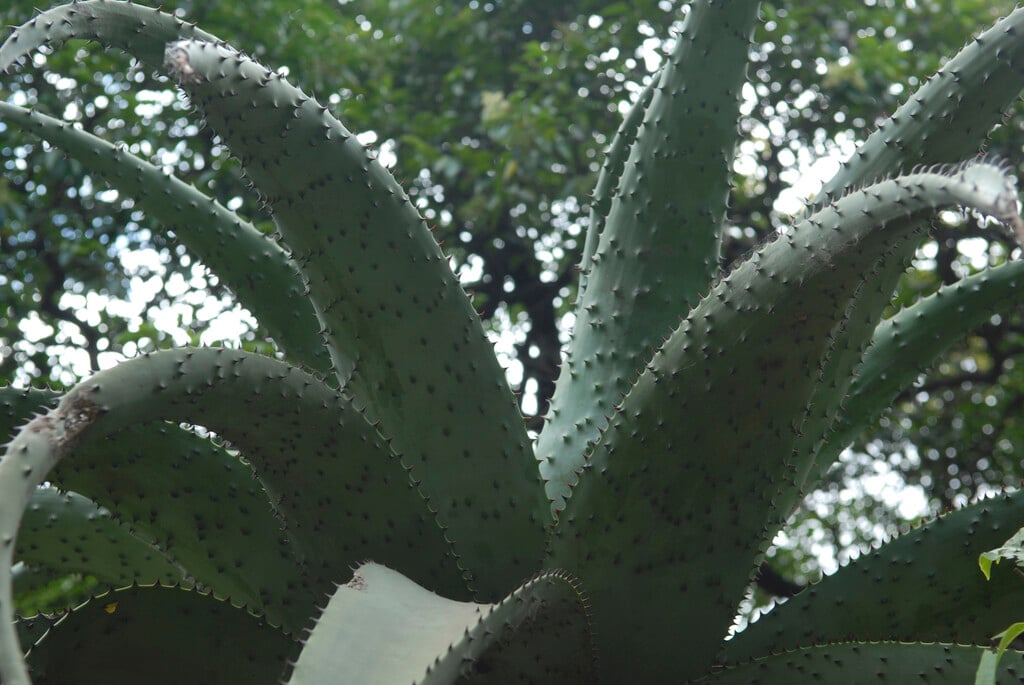Aloe marlothii
mountain aloe
A large tree-like succulent to 4m in height, with very thorny silver-green leaves forming a robust, fleshy rosette. Rarely seen in the UK, spectacular yellow-orange flowers are held on almost horizontal branches off the main upright flower stem, during summer
Size
Ultimate height
2.5–4 metresTime to ultimate height
5–10 yearsUltimate spread
1.5–2.5 metresGrowing conditions
Moisture
Well–drainedpH
Acid, Alkaline, NeutralColour & scent
| Stem | Flower | Foliage | Fruit | |
| Spring | Green Grey Silver | |||
|---|---|---|---|---|
| Summer | Green Grey Silver | |||
| Autumn | Orange Yellow | Green Grey Silver | ||
| Winter | Green Grey Silver |
Position
- Full sun
Aspect
South–facing or West–facing
Exposure
Sheltered Hardiness
H1CBotanical details
- Family
- Asphodelaceae
- Native to GB / Ireland
- No
- Foliage
- Evergreen
- Habit
- Clump forming
- Potentially harmful
- Human/Pets (dogs, cats, rabbits): Harmful if eaten. Wear gloves and other protective equipment when handling For further information and contact numbers regarding pets, see the HTA guide to potentially harmful plants
- Genus
Aloe can be mat-forming or shrubby evergreen perennials, with rosettes of fleshy leaves and small tubular flowers in racemes or panicles
- Name status
Correct
- Plant range
- Southern Africa
How to grow
Cultivation
Grow indoors in a container of peat-free, cacti potting compost or peat-free, loam-based potting compost with added horticultural grit. Water moderately when in growth; very sparingly when dormant. Apply a general liquid fertiliser monthly from May to August. Outdoors in warmer southern counties it can survive brief spells at -6°C if kept dry at the roots. See aloe cultivation for further advice
Propagation
Propagate from seed or leaf cuttings or by separating plantlets from the base
Suggested planting locations and garden types
- Architectural
- Sub-tropical
- Conservatory and greenhouse
Pruning
No pruning required
Pests
May be susceptible to scale insects and mealybugs
Diseases
Generally disease-free
Love gardening
Sign up to receive regular gardening tips, inspiration, offers and more
View our Privacy Policy
Get involved
The Royal Horticultural Society is the UK’s leading gardening charity. We aim to enrich everyone’s life through plants, and make the UK a greener and more beautiful place.

